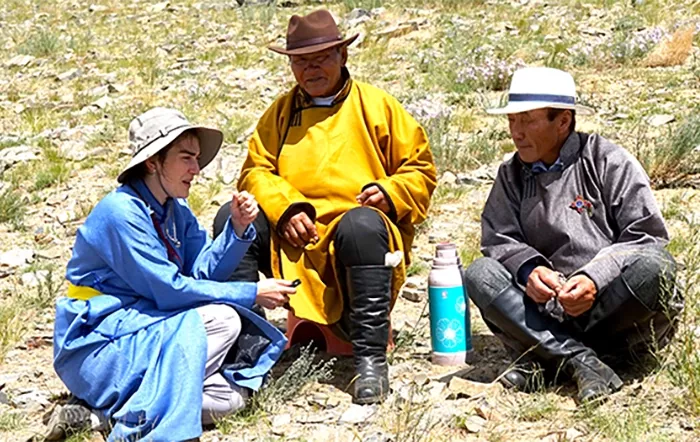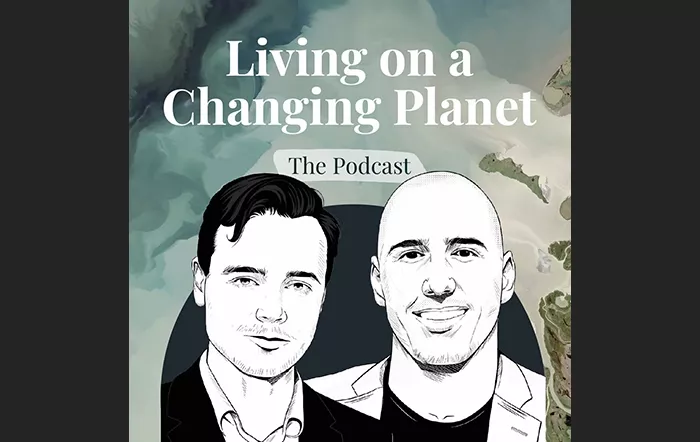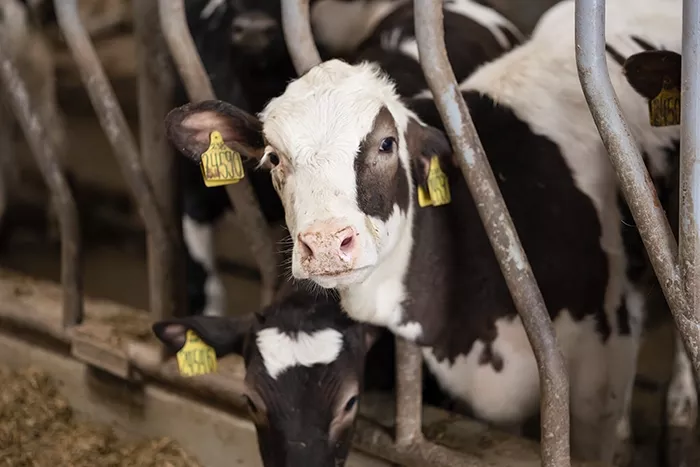The food industry will go to great lengths (and spend a fortune) to lobby policymakers, confuse the public and politicise scientific findings. When scientific evidence indicates the need to phase down environmentally harmful or unhealthy products, the responsible industry pushes back. In an article for The Conversation, Stephanie Walton, DPhil candidate in the School, explores how stranded assets may be motivating this resistance and examines the possible solutions.
News

SoGE MSc student Tabina Manzoor gives opening address at Right Here, Right Now climate summit
Tabina Manzoor, a Kashmiri student, researcher, and environmentalist currently pursuing an MSc in Water Science, Policy, and Management at SoGE, served as a student co-moderator at Oxford’s recently concluded Right Here Right Now Global Climate Summit, where she also gave an opening address at the Sheldonian Theatre.
At a crossroads: 'Geography needs more people like us'
Undergraduate student Eleanor Luxton interviews Dr Ariell Ahearn, a lecturer in Human Geography, on being working-class in academia, and why Mongolia is such a special place for her.

New Living on a Changing Planet podcast series launched to unite climate change and mental health
Living on a Changing Planet is a new podcast series exploring people's emotional responses to climate change. Produced by Carter Powis (SoGE doctoral researcher and climate scientist), and Patrick Kennedy-Williams (a clinical psychologist), together they tackle the topic that's been missing from the climate conversation: whether you're an energy worker who's facing the loss of your job and ability to provide for your family, a youth activist afraid of what the future holds, or a nature-lover grieving the rapid ongoing destruction of our biosphere - how do you learn to live with it?

How to talk to your family and friends about the new IPCC report - five tips from climate change communication research
The Intergovernmental Panel on Climate Change's latest report is a sobering read, which some describe as a "final warning" from scientists. It's important that people who already know about climate change and treat it seriously take proactive steps to speak with others about IPCC reports and climate change more generally. In an article for The Conversation, Josh Ettinger, doctoral candidate at SoGE, examines how to promote successful climate discussions among diverse groups of people.

Those seeds clinging to your hiking socks may be from invasive plants - here's how to avoid spreading them to new locations
Megan Dolman, recent graduate of the MSc in Biodiversity, Conservation and Management, explores the simple things that everyone can do before, during and after going outdoors to avoid picking up and inadvertently spreading invasive plants in an article for The Conversation.

UK life expectancy growing at slower rate than rest of G7, research shows
Life expectancy in the UK has grown at a slower rate than comparable countries over the past seven decades, according to researchers from Oxford's School of Geography and the Environment, who say this is the result of widening inequality. [The Guardian and coverage elsewhere]

SoGE to present new research at the 2023 AAG Annual Meeting
Researchers and students from across the University of Oxford's School of Geography and the Environment (SoGE) will present their research as part of the Association of American Geographers (AAG) Annual Meeting 2023. The international conference which will be held between 23 - 27 March, attracts geographers, GIS specialists, environmental scientists, and other disciplinary experts who share and discuss the latest in research and applications in geography, sustainability, and GIScience.

University of Oxford makes joint appointment of Professor of Sustainable Energy Engineering and ZERO Institute Director
Professor Paul Shearing will lead the new Zero-carbon Energy Research Oxford (ZERO) Institute and bring extensive experience in electrochemical engineering to the University's response to the urgent need for system level change in the energy sector. The ZERO Institute was launched by the Departments of Engineering Science, Materials, and Geography and the Environment in 2022.

'It's not a glass ceiling - it's concrete. If it was a glass ceiling, I'd be happy with it.' - International Women's Day with Dr Suriyah Bi
For International Women's Day 2023, Undergraduate student, Eleanor Luxton, speaks to Dr Suriyah Bi, founder of the Equality Act Review and lecturer in Cultural Geography.

'Rivers in the sky' shape African climate - research
Deep valleys contain airborne 'rivers in the sky' and help to create arid conditions in East Africa, according to new research from the University of Oxford and the UK's Met Office. Published in Nature, the study uncovers how east-west river valleys direct millions of tonnes of water vapour from the Indian Ocean away from East Africa and towards the Congo rainforest, and, in doing so, limit East African rainfall.

Scientists solve mystery of salt deserts' honeycomb patterns
Salt deserts are among the most extreme and inhospitable places on the planet and their bizarre and other-worldly polygon-shaped structures attract hundreds of thousands of tourists every year. Now a team involving researchers at Nottingham Trent University, TU Graz in Austria and Professor Giles Wiggs, Professor of Aeolian Geomorphology at SoGE, has been able to explain the origin of these patterns and their iconic shape and size.







